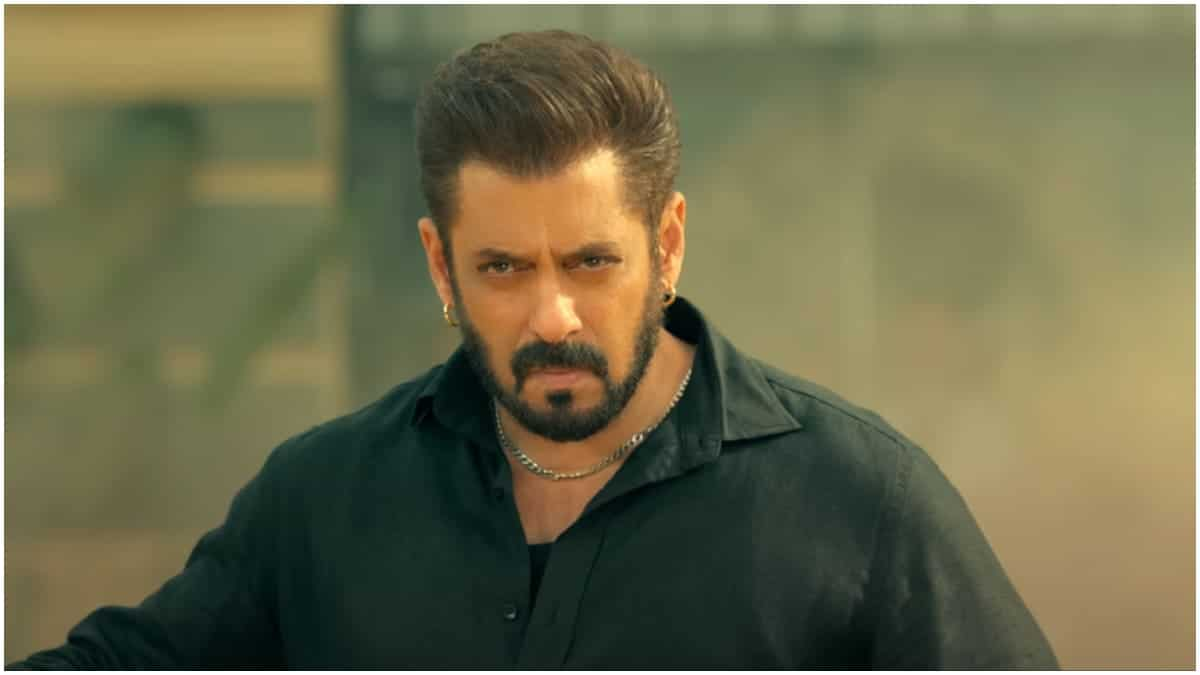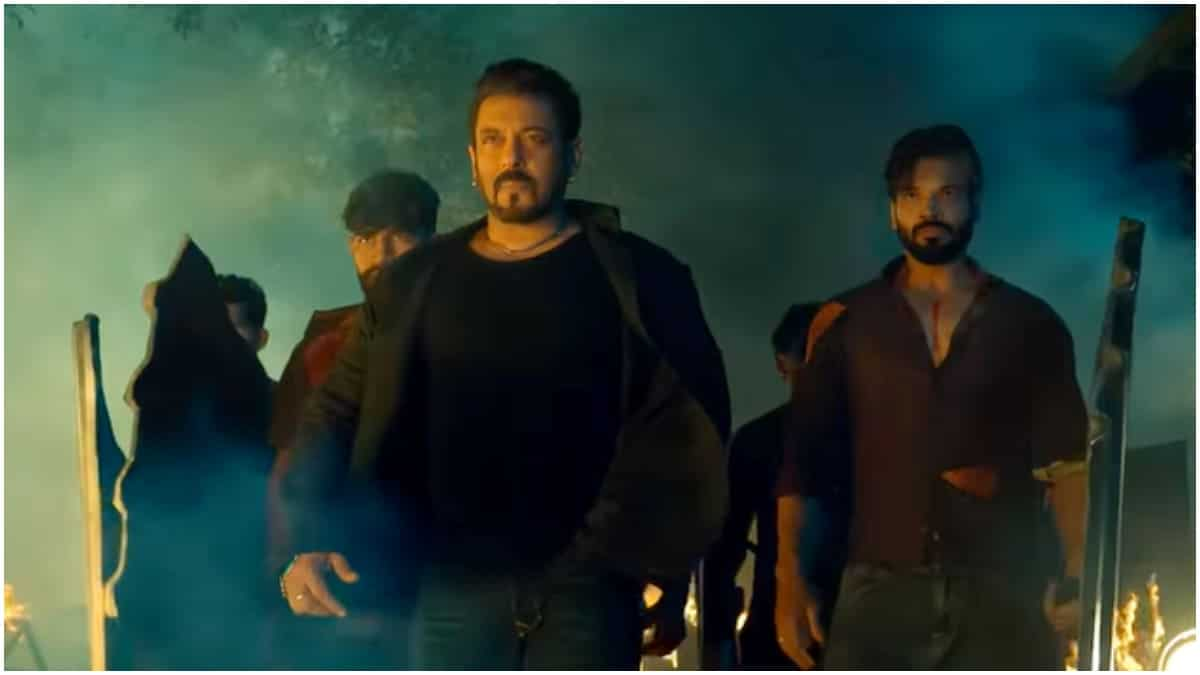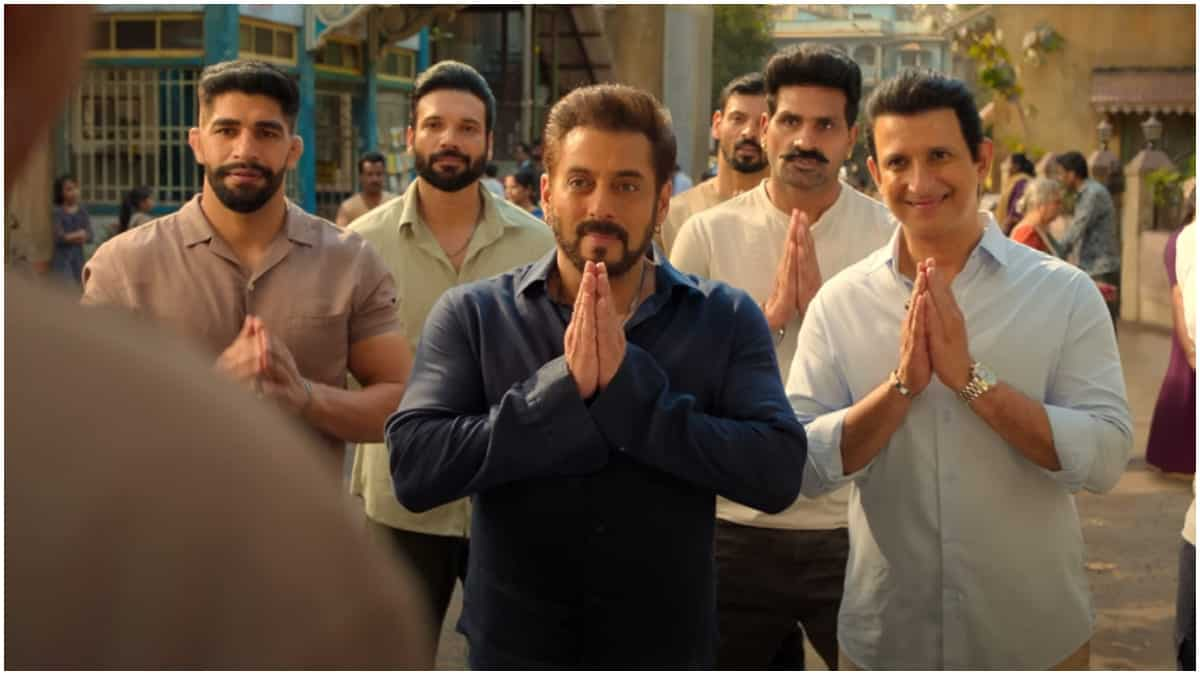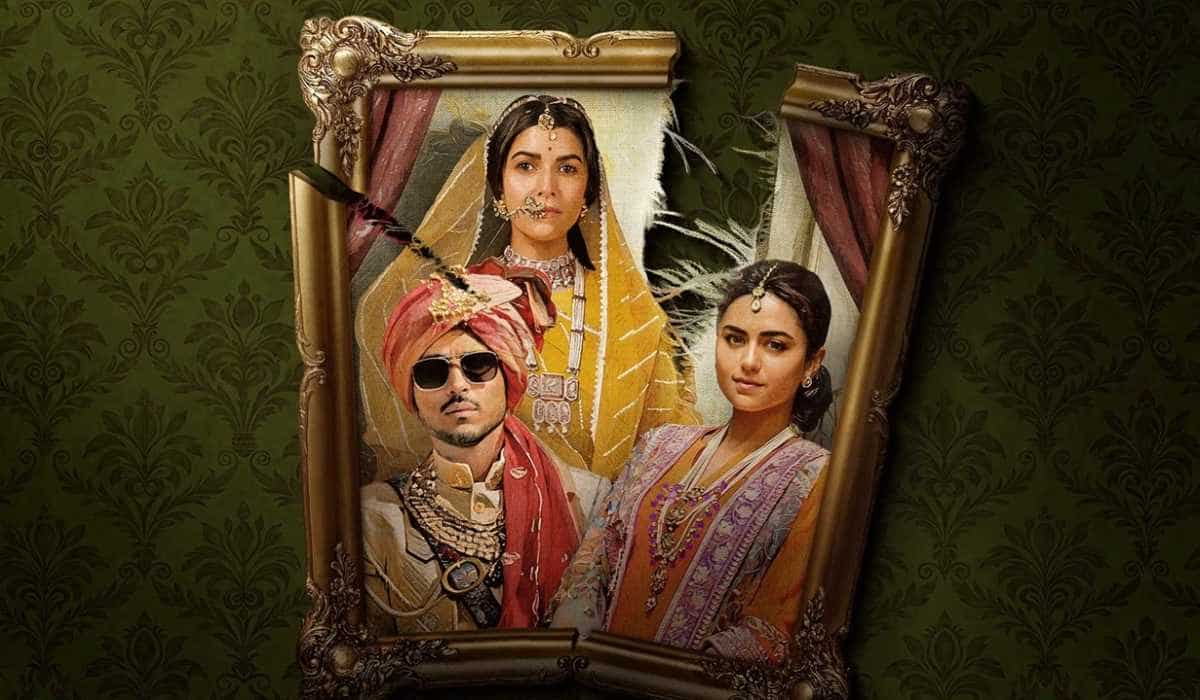
Sikandar Review: Salman Khan’s masterclass on how to take your audience for granted
1 month ago | 5 Views
Sikandar Story: Sanjay Rajkot (played by Salman Khan), the ruler of Rajkot and possessor of 25 percent of India's gold reserves, leads a life staged in Film City (essentially Rajkot). His wife, Saishri (portrayed by Rashmika Mandanna), serves as his unwavering support, frequently asserting, “I will not let anything happen to them,” before promptly departing. Sanjay has devoted his existence to aiding the underprivileged and establishing a syndicate capable of both lethal actions and compassion. However, when he confronts a pampered politician’s son from Mumbai, he inadvertently invites danger, as the politician (Sathyaraj) now seeks to eliminate him—known as Sikandar or Rajasahab. Amidst this turmoil, a tragedy befalls Saishri, leading to her organs being distributed across Mumbai for donation. Consequently, Sikandar is faced with the task of ensuring the recipients' survival, as what else can a King do beyond the confines of his Film City set?
Sikandar Review:
There are superstars who aim to give back to the system and audience that have supported them. Others focus solely on entertaining the audience without considering the broader cinematic landscape. Then, there are those who consistently take their audience for granted—one film at a time—failing to learn from previous missteps, producing extravagant, profit-driven projects that seem like a squandered opportunity from the outset, leaving no chance for redemption. It is unnecessary to elaborate further to indicate where the latest Salman Khan film, Sikandar, stands on this spectrum.
Salman Khan, AR Murugadoss, Rashmika, and 150 minutes of disjointed footage that struggles to form a coherent narrative; whether it can even be classified as a film is debatable. Before we explore the specifics—or the absence thereof—let us revisit the announcement of Sikandar. AR Murugadoss makes his return to Hindi cinema, collaborates with Salman Khan, and enlists Sajid Nadiadwala, creating what seemed to be an ideal team. The announcement hinted at a drama inspired by the historical figure Sikandar (Alexander the Great), suggesting a narrative with depth. Fast forward a year and a half, and the reality is a shallow and murky experience.

Authored by AR Murugadoss, Sikandar narrates the tale of a man who has never made a mistake, either in thought or deed. He is the heir apparent of a city and is married to a woman significantly younger than himself, whom he saved before their union. The citizens revere him to the extent that they would sacrifice their lives for him. However, the question arises: why are we invested in his narrative? The answer lies in an incident during a flight where he intervened when a minister's entitled son was harassing a woman. Sikandar confronted the assailant mid-flight while the flight attendant warned passengers of turbulence.
Sikandar's lethargy permeates even its most intense scenes, rendering them nonsensical. The screenplay lacks energy and sophistication. A mere fifteen minutes in, after two pointless fight sequences, a song is abruptly introduced. This seems to be a tactic to fill the void in a script that is largely empty. The heroine is made to dance, and the hero is prompted to move slightly. Sikandar fails to achieve anything meaningful, as if it were a collection of fifty advertisements stitched together. The film resembles an advertisement reel, with the actors performing in a manner that reflects this.
With Salman Khan in the lead and a substantial budget backing the project, one would anticipate a gripping narrative, well-developed characters, and thrilling confrontations from a director known for Ghajini. Yet, nothing—absolutely nothing—in Sikandar holds any coherence. It appears as though the actors merely showed up, strolled around, and departed. How else can one explain Salman Khan reciting lines rather than embodying a character? The absence of a coherent story only serves to underscore the lackluster performances. However, the blame does not rest solely on the actors; the director, producer, and all those who approved this version share equal responsibility.

While many films delve into the complexities of character development, Sikandar presents a stark dichotomy. You are either aligned with Sikandar and his allies, or you are deemed the antagonist. There is no nuance or middle ground. Should you challenge this perspective, Salman will recite another line from a large sign positioned above the camera. The film loses sight of its entertainment value and attempts to weave together multiple narratives simultaneously. The only fortunate individual in this scenario is Rashmika, who manages to exit the theater 40 minutes in, thus sparing herself from enduring the remaining 110 minutes. There is a noticeable lack of effort to improve the storyline or make it more palatable.
AR Murugadoss appears to be trapped in a bygone era yet has been instructed to adopt a more inclusive and progressive approach. He ensures that Rashmika Mandanna plays the role of Salman’s rescuer, while Kajal Aggarwal’s character advocates for her right to employment. However, there is a scene where Sanjay provides food for an entire community of children and purchases land behind their slum—currently a dumping site causing health hazards—yet he fails to consider relocating these families to better living conditions. Surely, a man with a quarter of India’s gold could facilitate such a change. The pretense of progressiveness diminishes when Rashmika is not permitted to voice her own struggles; she exists solely to support Sikandar, repeatedly declaring, “I will not let anything happen to Sikandar” every couple of minutes. At least he is not portrayed as an Animal, right?
Moreover, Salman’s supposedly progressive statement, “I am man enough to accept my mistake,” does little to advance the narrative. Sikandar takes its audience for granted in numerous ways, and fans of Salman Khan should feel insulted. The film claims Sikandar is well-known—just Google him—but if that’s the case, why is he unknown beyond Rajkot? Even prominent politicians seem oblivious to his existence. Saishri, who has been married to Sanjay for some time, discusses his name as if they are strangers.

The climax suggests that the crew may have grown weary of filming, opting to conclude on a particularly uninspired day. What other explanation could there be for Sikandar defeating the film's primary antagonist with a single punch that hardly resembles a blow? Each death in Sikandar unintentionally elicits laughter, even in moments that are meant to be serious.
Salman Khan requires a significant reinvention. Rashmika Mandanna should consider more discerning choices. AR Murugadoss needs a reminder of the essential elements of filmmaking. As for Sajid Nadiadwala, perhaps he should focus his investments more wisely. Sikandar ultimately leaves viewers feeling misled by a production that promised to be captivating. Sets that appear artificial and a film that seems hastily assembled do not contribute to a positive experience. Furthermore, is it necessary to discuss the poor quality of the music album?
Sikandar Review: Final Verdict
If your idea of dedication is Salman Khan squinting while reading from a large board, then this AR Murugadoss film may appeal to you. However, cinephiles deserve superior content, and fans deserve the best. If this is meant to be an Eid celebration, fans should rightfully expect more.
Read Also: Sikandar Review: Salman Khan Stumbles in a Lackluster Action Flick
Get the latest Bollywood entertainment news, trending celebrity news, latest celebrity news, new movie reviews, latest entertainment news, latest Bollywood news, and Bollywood celebrity fashion & style updates!





















